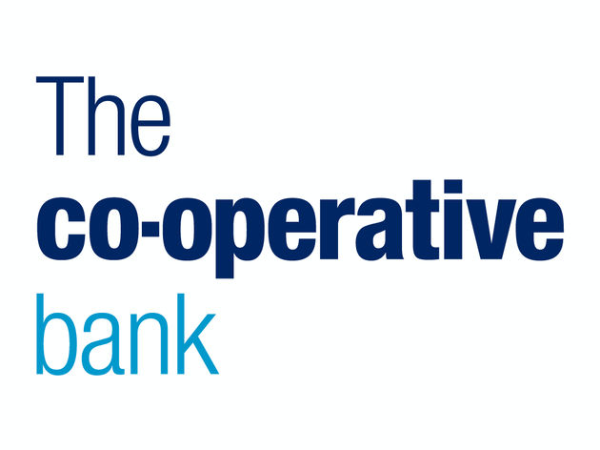How a High Street U.K. Bank Reflected Its Values and Ethics Through ESG Ratings and Reporting
By receiving an ESG Risk Ratings License from Sustainalytics, The Co-operative Bank could better communicate how its ESG Risk Rating reflected its values, policies, and programs around environmental, social, and corporate governance (ESG) issues.
Governance in Brief – January 26, 2023
Beijing takes golden shares in Alibaba units The Chinese government has acquired golden shares in two Alibaba subsidiaries, allowing it to exert veto power over major decisions while maintaining a relatively modest equity investment. A unit of state-backed Zhejiang Media Group first acquired such a minority stake in one Alibaba subsidiaries in September 2022, and an arm of the Cyberspace Administration of China (“CAC”) acquired a minority stake in another subsidiary in January 2023.
The Sustainalytics Podcast | Cybersecurity and Data Privacy in Focus: Cyberattacks and ESG
In this episode of the Sustainalytics Podcast, our experts explore cybersecurity and data privacy trends, how cyberattacks affect bottom lines, and why companies should invest in robust cybersecurity and data privacy policies.
Sustainability-Linked Financial Instruments: Creating Targets and Measuring Your Company's Performance
Sustainability-linked bonds and loans have begun to gain more attention. This blog post takes a closer look at key performance indicators (KPIs) and sustainable performance targets (SPTs) that must be kept in mind while opting for these instruments.
Governance in Brief – January 19, 2023
Beijing takes golden shares in Alibaba units The Chinese government has acquired golden shares in two Alibaba subsidiaries, allowing it to exert veto power over major decisions while maintaining a relatively modest equity investment. A unit of state-backed Zhejiang Media Group first acquired such a minority stake in one Alibaba subsidiaries in September 2022, and an arm of the Cyberspace Administration of China (“CAC”) acquired a minority stake in another subsidiary in January 2023.
Governance in Brief – January 12, 2023
Global investors pressure Glencore over coal production A group of investors with a combined USD 2.2 trillion in assets under management has submitted a shareholder proposal to the AGM of Glencore Plc, calling for improved disclosure on the commodity giant’s thermal coal operations and the alignment of these with the group’s public commitment to support the Paris Agreement’s goal of limiting global warming to 1.5 °C. The resolution constitutes a significant escalation of pressure on the mining company, which had already seen nearly a quarter of shareholders reject its climate progress report in April 2022.
Governance in Brief – January 5, 2023
U.S.-listed Chinese companies drop Hong Kong listing plans Several U.S.-listed Chinese companies, including Pinduoduo and Full Truck Alliance, have reportedly dropped plans to list their shares on the Hong Kong exchange. The decision came after the U.S. Public Company Accounting Oversight Board (“PCAOB”) announced that it had secured full access to investigate China-based audit firms, and that it had already reviewed eight audits conducted by Chinese KPMG and PwC affiliates. Chinese authorities had previously opposed any such disclosure, citing national security concerns.
How a Malaysian Port Operator Effectively Measured Its Impact on Local Communities
Westports Malaysia wanted to understand the extent of its corporate impact on the local economy, as well as its contributions to the surrounding community. The company was aware that its operations affected the lives of nearby residents, but they wanted to quantify that impact with factual evidence.
Investors Seek Meaningful Scope 3 Emissions Targets to Evaluate Climate Transition Plans
Climate concerns continued to dominate proxy voting in the 2022 proxy season. With more clarity on sectoral commitments required to achieve the global net zero goal, shareholders’ requests have become noticeably more specific. A larger number of resolutions asked companies to adopt and report on emissions reduction targets and transition plans that reference the latest forward-looking guidance.
Post-COP15 Outlook: Evolving Investor Responsibilities in Biodiversity
Awaiting COP15’s Global Biodiversity Framework negotiation outcomes, financial market participants could face new regulatory pressure sooner than expected to integrate biodiversity assessment into their investment, decision-making processes.
Governance in Brief – December 15, 2022
Canada to get tougher on foreign investment The Canadian government has proposed changes to the country’s foreign investment legislation aimed at enhancing the government’s ability to scrutinize and block investments that pose national security risks. The planned amendments would require foreign investors to give the government more notice for proposed investments in certain sectors. Additionally, the government will be allowed to impose interim conditions on an investment during the national security review, such as limiting access to transfer of assets, intellectual property or trade secrets.
What’s Happening in Sustainable Finance: Funding Emerging Markets’ Climate Adaption, Regulatory Focus on Scope 3 Emissions, and More
As 2022 winds down, we discuss notable developments in sustainable finance, including global green bond issuance surpassing $2 trillion, growing regulatory focus on scope 3 emissions reporting, and opportunities to support climate adaptation, and just transition in emerging market via sustainable finance activities.
Danish Delegation Engages Sustainalytics’ Biodiversity Expert, Enabling Front Row Access to COP15 Negotiations
Finance Day within the U.N. Biodiversity Conference (COP15) is fast approaching, and Morningstar Sustainalytics’ team members will be in attendance, each focusing on different investor biodiversity considerations related to active ownership.
Governance in Brief – December 8, 2022
EU Parliament approves directive boosting female board representation The European Parliament has approved a directive requiring the “underrepresented sex” to make up 40% of non-executive director roles or 33% of all director roles of publicly listed EU companies, excluding small and medium enterprises, by June 2026. According to the “Women on Boards” Directive, which was passed 10 years after it was first proposed by the European Commission, companies will have to annually report on board gender representation to authorities and, in case targets are not met, explain how they plan to attain them. Additionally, Member States will have to set up a penalty system, including fines or annulment of director selection, for noncompliant companies.















